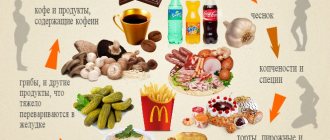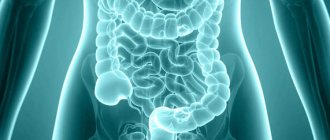Heartburn during pregnancy is a fairly common phenomenon, often occurring even in cases where the woman had never encountered such a problem before pregnancy. Most often, heartburn begins to bother pregnant women in the later stages, in the second or third semester. What is the cause of heartburn during pregnancy and how to deal with it?
Causes of heartburn during pregnancy
Heartburn (acid dyspepsia) is an unpleasant burning sensation in the chest and mouth. In pregnant women, heartburn may be accompanied by nausea, vomiting, pain in the throat, abdomen and stomach, as well as a disorder of the swallowing mechanism. Also, heartburn during pregnancy is fraught with sleep and eating disorders.
Let's look at the main causes of heartburn during pregnancy.
Hormonal changes
During pregnancy, the level of progesterone production, or the so-called pregnancy hormone, increases. It is responsible for relaxing the muscles of the uterus to prevent miscarriage. The difficulty lies in the fact that the action of this hormone also extends to the esophagus, stomach and intestines.
Between the esophagus and the stomach there is a sphincter that must close after food enters the stomach. But under the influence of progesterone, the performance of the sphincter deteriorates, which is why food returns to the esophagus, with hydrochloric acid, which aggravates the situation. In addition, due to hormonal imbalance, the acidity of gastric juice increases, which also provokes heartburn.
Mechanical impact
From the second trimester, the size of the uterus increases significantly, causing pressure on the gastrointestinal tract. The volume of the stomach decreases, which creates conditions for the contents of the stomach to be thrown into the esophagus.
Heartburn can occur due to weight gain, as the extra pounds cause blood pressure to affect the abdominal cavity. It is advisable to avoid tight clothing, as if the clothing squeezes and tightens the stomach, this can provoke the release of acid from the stomach.
Eating certain foods.
During pregnancy, the following types of food can cause heartburn:
- Fatty foods (fish, meat).
- Fermented milk products (ryazhenka, kefir, etc.).
- Bakery.
- Fast food.
- Some types of fruits: citrus fruits, kiwi, green apples, honeysuckle, currants.
- Tomatoes.
- Chocolate.
- Smoked meats.
- Marinades.
- Carbonated drinks.
- Hard boiled eggs.
First trimester of pregnancy
Many problems that arise with the health of the expectant mother and carrying the baby are easy to identify in advance and prevent their development. What does that require? Register in a timely manner and undergo examinations in accordance with the timing of pregnancy.
Find out more about the features of the 1st trimester
In the later stages
After 24–25 weeks of pregnancy, the effect of progesterone decreases and the expectant mother experiences some relief. However, the growing uterus and baby begin to put pressure on surrounding organs, including the stomach, lifting it upward. That is, mechanical conditions are created to relax the sphincter between the stomach and esophagus.
Treatment of heartburn during pregnancy
To treat heartburn during pregnancy in mild cases, it is enough to follow the following points:
- Dieting. For pregnant women, oatmeal, natural milk, boiled or baked meat and low-fat fish, and steamed omelettes are recommended. A diet for heartburn involves certain restrictions, especially in plant foods, which can lead to a deficiency of minerals and vitamins necessary for the body. To avoid this situation, you can take vitamin and mineral complexes designed specifically for pregnant women. Such drugs, for example, include the Pregnoton Mama complex. It contains folic acid, Omega-3, liposomal iron, iodine, selenium, biotin, zinc, and vitamins. All these substances are necessary for the proper formation and development of the fetus. The drug is available in the form of soft capsules that are easy to swallow. Thus, mother and baby will receive all the necessary substances even if they follow a diet.
- Lifestyle changes. Not only to prevent heartburn, but also in general during pregnancy, you need to give up alcohol and cigarettes, including electronic ones. After each meal, it is better to walk a little or sit quietly. Taking a horizontal position and bending over is strictly not recommended.
- Proper sleep. To prevent heartburn, pregnant women are advised to sleep with the head of the bed elevated. This is where an extra pillow can come in handy.
- Proper eating. Food must be chewed thoroughly and there is no rush. It is better to reduce the size of portions, but increase the number of meals.
What are the symptoms of heartburn and indigestion?
Broadly speaking, symptoms of reflux may include:
- Sour taste in the mouth, sometimes accompanied by nausea;
Hoarseness and a bitter taste in the mouth – this condition is also called “silent reflux” or reflux esophagitis.
If we talk about heartburn, it is characterized by the following sensations:
- Burning pain in the chest area, most often behind the sternum;
- Sensations of compression in the chest area.
Heartburn may last for a few minutes or several hours, especially if you suffer from severe heartburn.
Indigestion usually manifests itself in the form of:
- Pain in the lower chest, abdomen and stomach (usually occurs after eating, although this is not a necessary condition);
- Feelings of fullness; in this case, you feel bloating in the stomach area;
- Belching;
- Nausea and even vomiting.
How to quickly get rid of heartburn during pregnancy?
What helps with heartburn: treatment with folk remedies
- Drinking baking soda for heartburn during pregnancy is one of the most common “folk” ways to combat heartburn. This method really gives a quick effect, but it wears off quickly, and in addition, soda interacts with gastric juice, which leads to the release of additional portions of hydrochloric acid and, accordingly, to heartburn.
- Milk. The drink contains a large amount of proteins and antacids, which reduce acidity levels. Drinking one glass of milk is often enough to relieve heartburn. To enhance the effect, you can add a few drops of fennel.
- Potato juice , squeezed from grated raw potatoes, can be an effective remedy for heartburn during pregnancy, as it normalizes acidity. However, not everyone can bring themselves to drink potato juice, as it has a peculiar taste.
- Ground eggshells. The shell contains calcium carbonate, which reduces acidity levels in the body. Note that with long-term use, this method will give the opposite effect, that is, the acidity will increase.
- Carrot juice. Helps neutralize acidity.
- Oatmeal has an enveloping property, thanks to which it is able to block unpleasant sensations.
However, before resorting to “folk” methods of dealing with heartburn, still discuss with your doctor how best to cope with the problem in your particular case.
In recent months, heartburn tends to subside as the body reduces progesterone production and the pressure on internal organs decreases as the stomach lowers.
THIS IS NOT AN ADVERTISING. THE MATERIAL WAS PREPARED WITH THE PARTICIPATION OF EXPERTS.
Characteristics of heartburn in the 3rd trimester
There is no difference in the duration of pregnancy - the manifestations of heartburn are the same at all stages:
- hot wave in the epigastric region and esophagus;
- bitterness or acidity in the mouth;
- bloating, heaviness in the stomach;
- frequent belching;
- sore throat.
At 30 weeks of pregnancy, heartburn is often accompanied by other unpleasant symptoms - flatulence, bloating, frequent constipation, colic. The burning sensation begins to torment constantly after eating and lasts up to 2 hours if no action is taken. Also, expectant mothers are often bothered by nighttime heartburn and a sour taste in the mouth in the morning. Most often, this reaction occurs after eating smoked, fried, salted or spiced foods. Some medications cause the same discomfort in pregnant women.
Prevention
Prevention measures include:
- walk every day;
- sleep on an inclined bed so that the head end is 15–20 cm higher than the legs;
- after eating, do not make sudden movements, turns, or bends;
- eat meals in small portions with breaks of no more than 3 hours;
- do not rush while eating, chew slowly and for a long time;
- increase the proportion of carrots, beets, prunes, bran, and oatmeal in your diet;
- drink a glass of fresh kefir or milk every day at night;
- Replace white bread made from wheat flour with whole grain bread;
- It is advisable to dry soft fresh bread.
Additional symptoms
Sometimes additional symptoms occur with heartburn:
- pain in the stomach, intestines;
- belching with an unpleasant odor and food particles;
- nausea;
- diarrhea;
- vomit.
These symptoms indicate the seriousness of the problem and require prompt medical attention. They can be caused by gastritis, colitis, peptic ulcer, inflammation of the gallbladder, etc.
During pregnancy, some women develop intolerance to certain foods. In this case, toxicosis can continue throughout the entire period. After eating these foods, the above symptoms may occur. A doctor will help determine the cause.
Medications
Pregnant women should take medications only after consultation with their doctor. The following drugs are publicly available and sold without a prescription, but prior consultation with a doctor is advisable.
Considering that the child is already formed by the 3rd trimester, the list of approved drugs is somewhat expanded. What can pregnant women do:
- "Gastal." A tablet drug that has proven effective against heartburn. Helps quickly eliminate excess hydrochloric acid, reduce stomach pain and reduce flatulence. Allowed at any stage of pregnancy.
- "Maalox." Suspension prescribed for gastritis, gastroduodenitis, reflux.
- "Phosphalugel". Used in the treatment of gastritis, heartburn, erosion of mucous membranes, etc.
- "Almagel". Reduces the aggressive effect of gastric juice, helps with heartburn.
Medicines for the treatment of heartburn
Activated charcoal should not be used as a medicine for heartburn. The property of this drug, breaking down into small particles, absorbs and absorbs toxic substances and, then, removes them from the body. Activated carbon is safe for health, is not absorbed into the blood, is easily excreted from the body, cleansing the digestive system, but it does not affect the acidity and functioning of the secretory glands that produce gastric juice. If you take charcoal regularly, bloating and flatulence are significantly reduced. Its analogues are also: “Smecta”, “Lactofiltrum”, “Neosmectin”.
Heartburn before or during childbirth
Many expectant mothers have to suffer from heartburn throughout their pregnancy, starting from the first month. The closer the birth process is, the more pregnant women are interested in the question of whether she will suffer from heartburn before childbirth. Could this symptom bother her even in the maternity hospital?
There is no need to worry about this - a few days before giving birth, heartburn disappears, for the following reasons:
- before childbirth, the stomach drops, the fetus puts less pressure on the stomach;
- The baby's movements become less active.
After childbirth, unpleasant symptoms disappear completely, but only if they are caused by pregnancy and not by problems with the gastrointestinal tract.
How to treat heartburn in pregnant women?
Heartburn during pregnancy can occur from poor nutrition.
Since heartburn at each individual stage of pregnancy occurs under the influence of a unique set of factors, when choosing the appropriate treatment, you should be guided, first of all, by information about the current trimester of gestation.
For example, in the early stages, expectant mothers usually suffer from the described disease due to non-compliance with basic nutritional standards.
At the same time, in the third trimester, heartburn occurs solely due to the “unsuccessful” location of the fetus in the uterus.
It is clear that fighting the manifestations of these two fundamentally different types of disease using the same methods would, at a minimum, be ineffective. How exactly it is worth treating heartburn at one or another stage of gestation is described in detail below.










